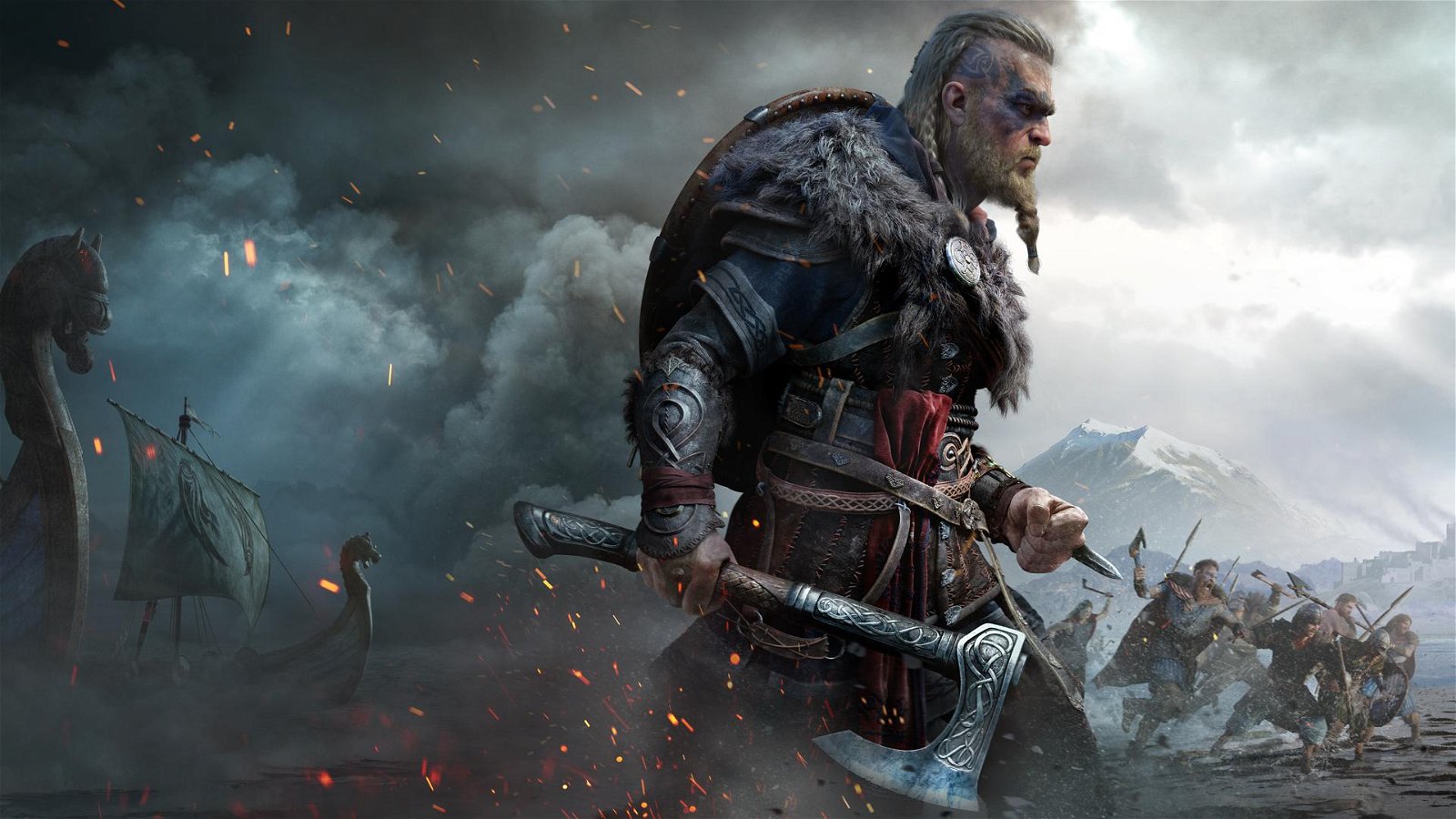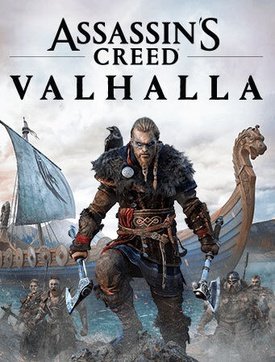Playing Assassin’s Creed Valhalla, I continually asked myself one question: What is an Assassin’s Creed game?
It’s a question that follows the three year anniversary of Assassin’s Creed Origins, Ubisoft’s retooling of the franchise’s formula. I enjoyed that game, finding it to be a refreshing evolution of a series that felt lifeless for far too long. Yet its follow-up, 2018’s Odyssey, was bloated and dull in comparison. In the context of its immediate predecessor, Valhalla is refreshing.
But in the context of third-person open world games, Valhalla is merely fine. While individual mechanics and features, such as the combat and settlement building, are interesting and impactful, they do not quite coalesce into a truly compelling whole. Yet I can’t help but recommend Valhalla. It’s a strong step forward towards defining what exactly an Assassin’s Creed game is, and makes me look forward to what’s coming in the future.
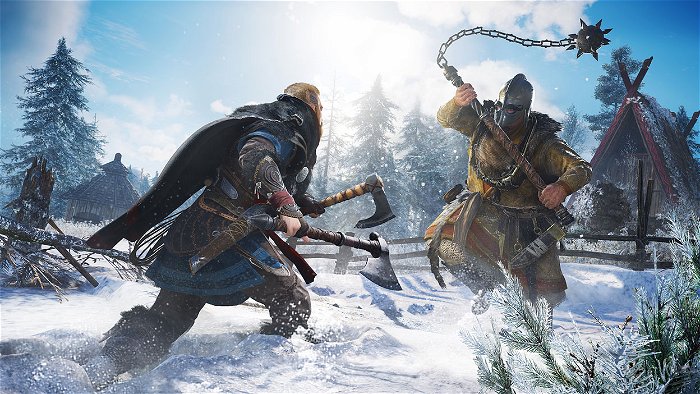
Assassin’s Creed Valhalla follows Eivor, a male or female Viking (The choice impacts little) raider of the Raven Clan, who sets out with their brother Sigurd from Norway to forge a new life in 9th century England. That is where the bulk of the game takes place, as Eivor finds themselves tangling with various factions of Danes and Saxons who each seek to conquer the land and make it their own. They also contend with the Hidden Ones and Order of the Ancients, the precursors to the Assassins and Templars, who steadily make their presence known as the story develops. Eivor’s journey focuses on glory and loyalty, as they are confronted by visions of betrayal and their own changing relationship with Sigurd, who has ambitions greater than what anyone foresees. Seeing Eivor grow and mature in the new land they find themselves in is arguably the most interesting part of the story, albeit one that I never felt particularly drawn to. And while each region of England has its own story arc, most of which are reasonably compelling in isolation, the disjointed nature of going from region to region hampers the storytelling.
Similarly, the modern day narrative continues to take a back seat in Valhalla, as the trilogy that began in Origins finally comes to a close. Layla has never been an interesting protagonist for me, and she feels more and more like an afterthought with each passing game. Whether Ubisoft improves upon this element in future sequels remains to be seen.
While the narrative is unremarkable, Valhalla’s world is impeccably designed, and a contender for one of the best in the series. The rolling hills of Mercia, the sodden marshlands in East Anglia, the density of Lunden, the fjords in Norway; Ubisoft has crafted 9th century England and Norway into a gorgeous landscape that does not suffer from the excesses found in Odyssey. Points of interest are broadly consigned into three categories, and while there are a lot of activities to do in each region, they are distributed evenly while also leaving plenty of space for the world itself to merely exist. I had a major problem with the density of activities in Odyssey, and seeing that reigned in is a sigh of relief. The activities themselves are quite enjoyable; I particularly enjoy flyting, which is basically a 9th-century poetry battle, but drinking contests, numerous side quests, and assassination contracts are similarly entertaining.
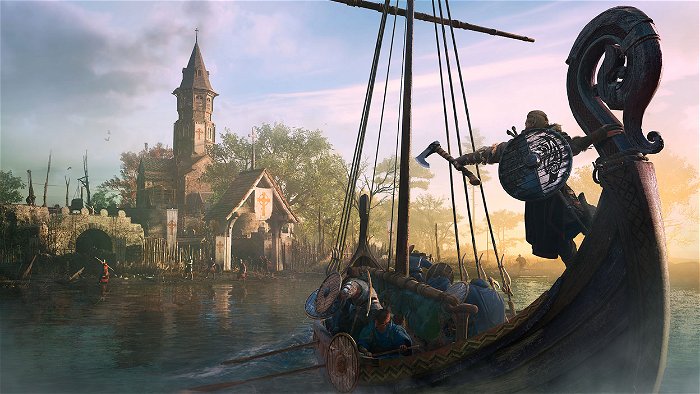
Speaking of, it’s noteworthy that I have to specifically acknowledge that assassinations have returned in force to Valhalla, considering the series’ signature mechanic was sidelined in recent outings. Every opponent can be assassinated, including powerful enemies, provided you have the right abilities and approach to a situation. And the missions where you can assassinate high value targets are among the most rewarding in the game. That said, this is still Assassin’s Creed stealth at its core — it is far too simple for my taste.
With assassinations making a comeback, it’s also noteworthy that combat in general is much improved. Pitched melee battles in the form of stereotypical Viking raids and much more visually impressive assaults on fortresses form the bulk of combat, which means it is rare for Eivor to be completely surrounded. This would make things much easier, but Ubisoft has smartly added a stamina meter that is exclusive to combat that dictates how frequently you can dodge or use powerful attacks. This prevents infinite dodging, which was an easy solution to fights in other games, but the fact that stamina is recovered through simple attacks means aggression is still rewarded. Abilities also return, which can be used at the cost of adrenaline, but it does not recover as quickly as before, forcing you to use these powerful tools sparingly and thereby allowing for some measure of intelligence in combat. The end result means that both large scale battles and pitched one-on-one duels both feel good to play, which is a step up for Assassin’s Creed in general.
The one major issue I have about combat is the health bar. No longer will an Assassin’s Creed character heal over time; instead, you must eat food to heal yourself, be that through eating random items while exploring or consuming rations while fighting. It means that you have limited resources to heal while fighting, which I view as an upgrade over the neverending fights in earlier games. Yet it feels weird to have to run around a battle trying to find some berries because you used up all your rations, and more often than not the health bar took me out of the game every time I had to interact with it.
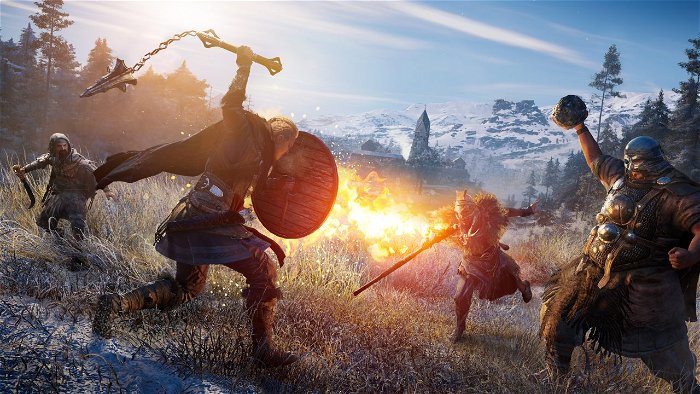
Eivor improves over time via leveling up by choosing one of hundreds of different nodes on the vast web that is Valhalla’s skill tree. Most of the choices on the skill tree do not make you feel strong – for every ability that lets you chain assassinate targets, there are 10 that give you +1.5 attack or +5.2 health. Why decimals are being used is baffling, as there is practically no difference between stat upgrades in the short term. On a long timeline, you will feel more powerful, but this comes at the cost of each skill point lacking immediate impact since you will level up well over 100 times over the course of the game.
Gear also plays a pivotal role in growth, but fortunately, this is much better done. In Origins and Odyssey, one would frequently recover useless weapons and gear that were of poor quality, serving little purpose other than to clog inventories that you would later sell. In Valhalla, each piece of gear is unique, and are typically earned via quests or treasure chests hidden away throughout the world. This makes your choice of gear feel more important, and the fact that each item is upgradeable means that you can use the same gear throughout the entire game should you so choose. And even though the number of items is drastically curtailed in comparison to previous games, there is still a great deal of variety to the gear that is available, which encourages experimentation to find playstyles that are right for you. I only wish resource gathering was less tedious — finding the right resources to upgrade gear can take awhile, depending on the circumstances, which unfortunately makes the microtransactions more predatory as a result.
In terms of other RPG elements, I’m happy to write that Ubisoft actually implemented interesting choices into the story that have gameplay implications. After hearing Ubisoft developers say that the choices in their games matter for years, I’m surprised by the one’s found in Valhalla. For example, one early game choice will result in powerful enemies either hunting you down across the map or patrol set locations for the remainder of the game. You won’t know what the implications for your choices are, but seeing the major effects your choices have on the world itself, even if you only put the pieces together later, is engaging.
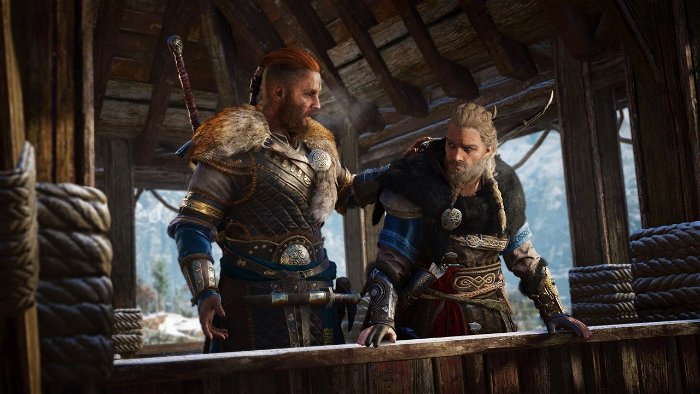
Likewise, one of my favourite aspects of Valhalla is building and upgrading your settlement. Called Ravensthorpe, you will earn resources through raids and bartering that will enable you to construct barracks, houses, shops, and other buildings that will provide gameplay benefits for Eivor and the clan. Seeing it grow into a functioning town is genuinely quite fun, and there’s a wide assortment of cosmetics that you can make use of in order to personalize the settlement and enact your own vision upon it.
Taking all of this together, that word that comes to mind most often to describe Assassin’s Creed Valhalla is ‘fine’. It is a fine game, with many strong individual elements that make me look forward to what the future of the franchise offers. But it is, in and of itself, nothing special. It is merely entertaining throughout, an enjoyable shadow of what Assassin’s Creed could potentially become. Because to answer the question posed at the beginning of this review, an Assassin’s Creed game is simply a big-budget open world action-RPG that is still struggling to define itself.
